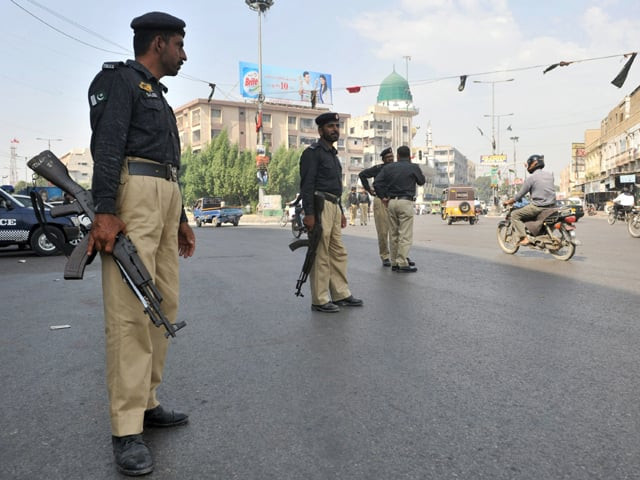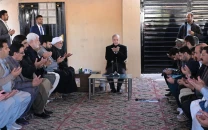‘Still awaiting implementation’
Speakers stressed the need for change in the current police setup at a seminar on ‘Police Reforms’.

These were the views of the speakers at a seminar on ‘Police Reforms’ organised by Sustainable Development Policy Institute (SDPI) on Monday.
Speaking at the occasion, former Secretary Interior Kamal Shah said that ‘Police Reforms 2002’ was a first serious attempt at reforming national police force, which had had been working on the ‘outdated’ Police Act of 1861.
“Since 1947 a total number of 11 committees and commissions were made to reform the police force, but their recommendations were always ignored by the following governments,” said Shah, while stressing the need for implementation of Police Reforms 2002.
Elaborating on three central points in reforms of 2002, Shah emphasised on the formation and affective working of Public Safety Commissions (PSCs). “This should be done at federal, provincial and district levels, in order to bring accountability of police in action,” he said.
The PSCs were a platform where citizens could register their complaints against police. “These bodies are essential to ensure transparent working of police,” said Shah.
The former secretary interior also suggested that the top leadership in police should be given the same authority as in the armed forces. “If an army chief dismisses any of his subordinates they cannot go to any platform to challenge the decision. If this can happen in army why not in police,” he said.
On the other hand, Daniyal Aziz, former chairman of National Reconstruction Bureau, asked for speedy implementation of Police Reforms 2002 in letter
and spirit.
“Army is already stretched due to the on-going war on terror, so we need to make our police force more affective and reliable,” said Aziz.
He reiterated that the police reforms could not work without local government’s system in place.
“Through police reforms 2002 we had abolished the colonial systems of bureaucracy in the district management, but it was sternly opposed by people from within, especially the District Management Group officers,” he said. Aziz added that the group feared ‘losing their authorities’.
He said that the police had the ‘will-to-change and realisation of their problems’. “They only had to be freed of political influences” he added.
However, Superintendent of Police (Traffic) Farhat Abbass Kazmi said no reforms could work unless the rank officers were not given encouragement. “These officers need to know that they too could access top tier of leadership, such as the Inspector General of Police or at least the Deputy Inspector General,” he said.
Mukhtar Ahmed Ali, Executive Director of Center for Peace and Development Initiatives, said that the govt needs to start implementing the positive and non-controversial parts of the Police Reforms Order 2002 and not wait for the consensus on whole of the legal framework.
Published in The Express Tribune, November 9th, 2010.



















COMMENTS
Comments are moderated and generally will be posted if they are on-topic and not abusive.
For more information, please see our Comments FAQ